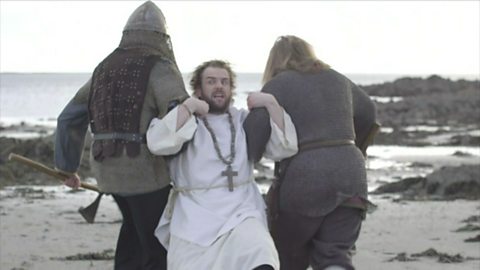Anglo-Saxons and Vikings
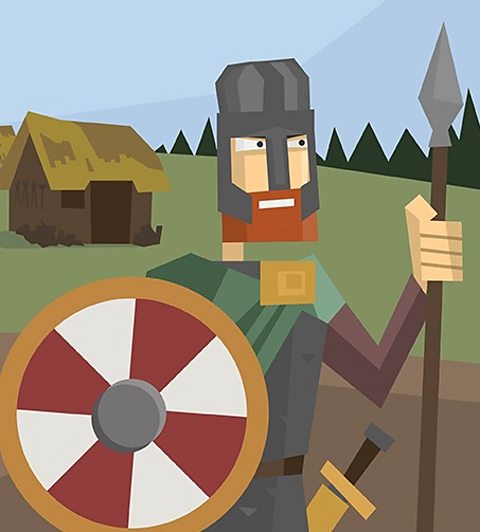
In AD793 some Vikings attacked and destroyed the monastery of Lindisfarne, killing the monks and taking precious ornaments.
This marked the start of a long struggle between the‚ÄØAnglo-Saxons‚ÄØand the‚ÄØVikings‚ÄØfor control of Britain.
In the 9th century (AD801 - 900), King Alfred of Wessex‚ÄØstopped the Vikings taking over England.
He agreed to peace with them and some Vikings settled in their own area of eastern England, called the Danelaw.

How did the Anglo-Saxons take control of England?
After Alfred, Anglo-Saxon kings took the Danelaw territories back from the Vikings. Alfred's grandson, Athelstan, pushed English power north as far as Scotland and was the first king to claim to be ‘King of all England’.
In AD954, the Anglo-Saxons drove out‚ÄØEric Bloodaxe, the last Viking king of‚ÄØJorvik. Later, when Eric was killed in battle, the Vikings agreed to be ruled by England's king.
The most powerful Anglo-Saxon king was‚ÄØEdgar. Welsh and Scottish rulers obeyed him as well as the English, and his court at Winchester was one of the most splendid in Europe.
Anglo-Saxon England reached its peak during Edgar's reign.
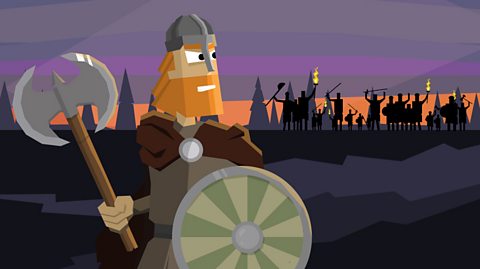
How did King Cnut become king?
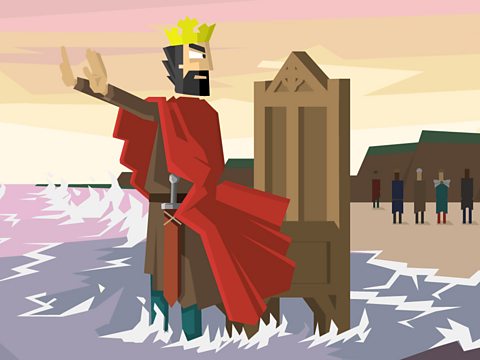
In Viking times, a king had to be strong to fight and keep his land. Ethelred the Unready was thought of as a weak king of England in the 11th century.
Ethelred gave the Vikings gold and land to stop them invading. This money was called Danegeld. But it didn’t work – the Vikings took the gold and attacked anyway.
Ethelred's soldiers killed many Viking families in the Danelaw. This made King Sweyn of Denmark angry. He invaded England and Ethelred fled to France.
Sweyn's son Cnut (also known as Canute) became king of England. Cnut was a strong ruler and England became part of his Viking empire, later along with Denmark and Norway.

Who was 'Edward the Confessor'?
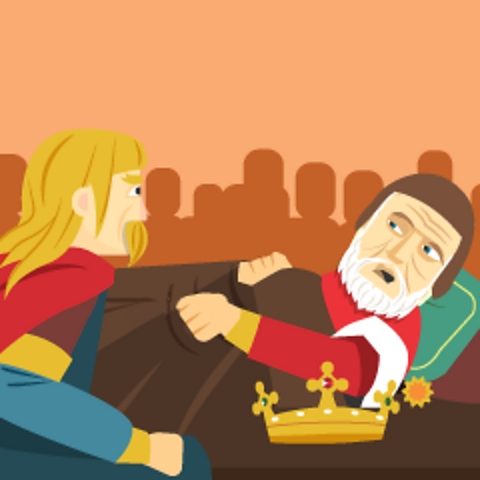
In 1042 there was a new king of England called Edward, also known as Edward 'the Confessor.'
He had no children so it was unclear who would become king next.
After Edward died, the English Witan (council of Anglo-Saxon kings) chose Earl Harold of Wessex as the next king.

How did Anglo-Saxon England come to an end?
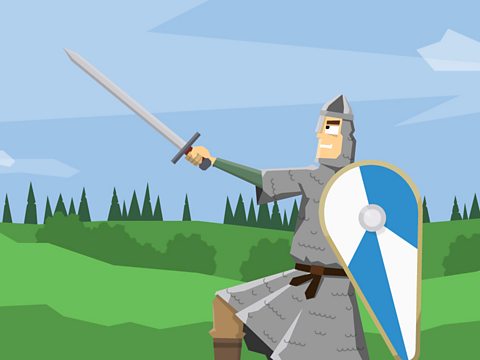
Duke William of Normandy and Harald Hardrada, the King of Norway, were not happy that Harold became king. They both believed they had a claim to the throne.
In 1066, England was invaded twice.
- First, a Norwegian army led by Harald Hardrada landed in the north.
- King Harold killed Harald Hardrada at the Battle of Stamford Bridge.
Three days later William's Norman army landed in the south of England.
- William and Harold's armies fought at the Battle of Hastings.
- The Normans won, King Harold was killed, and William became king.
This brought an end to Anglo-Saxon and Viking rule. A new age of Norman rule in England had started.

Activities
Activity 1: King Edward of England timeline
Edward was the son of Ethelred the Unready and ruled England from 1042. Find out about his life by clicking below.
Activity 2: Quiz – How Anglo-Saxons and Vikings struggled for power
Bitesize Primary games. gameBitesize Primary games
Play fun and educational primary games in science, maths, English, history, geography, art, computing and modern languages.

More on Vikings
Find out more by working through a topic
- count8 of 10
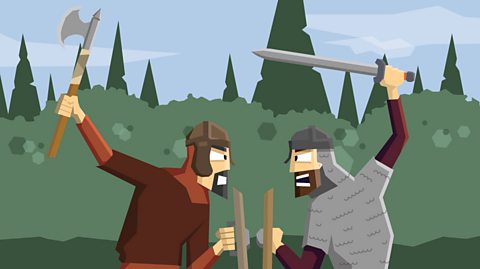
- count9 of 10
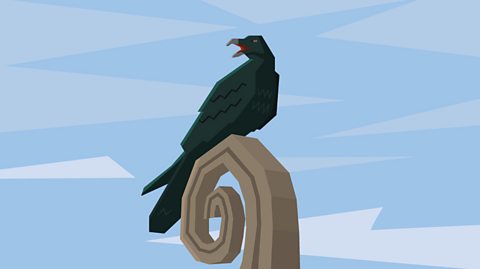
- count10 of 10
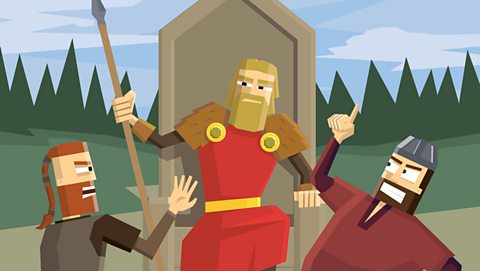
- count1 of 10
